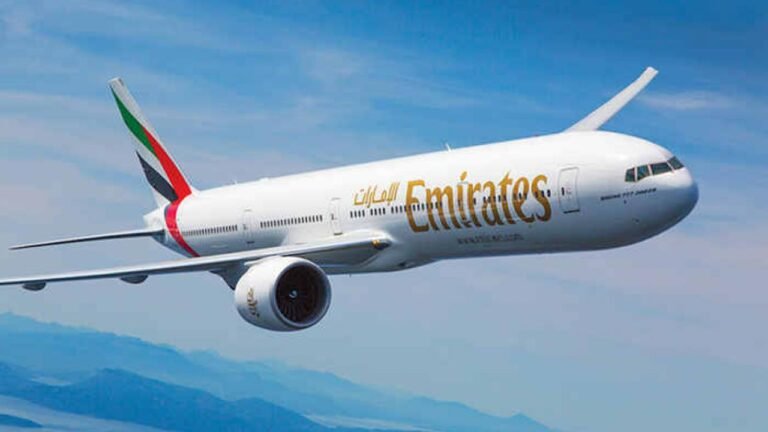Emirates, the world’s largest international airline, has announced it has committed $200 million to fund research and development (R&D) projects focussed on reducing the impact of fossil fuels in aviation.
This is the biggest single commitment by any airline on sustainability, with funds to be disbursed over 3 years. Emirates will identify partnerships with leading organisations working on solutions in advanced fuel and energy technologies.
“We are ring-fencing US$ 200 million to invest in advanced fuel and energy solutions for aviation, which is where airlines currently face the biggest impediment in reducing our environmental impact. We looked long and hard at the reality we face in commercial aircraft and engine technology, fuel supply chain, and our industry’s regulatory and eco-system requirements. It’s clear that with the current pathways available to airlines in terms of emissions reduction, our industry won’t be able to hit net zero targets in the prescribed timeline,” Sir Tim Clark, President Emirates Airline, said.
READ: Emirates SkyCargo and Air Canada enhance cargo interline cooperation
“We believe our industry needs better solutions, and that’s why we’re looking to partner with leading organisations on R&D. Our aim is to contribute meaningfully to practical solutions for the long-term sustainability of commercial aviation.”
“Until viable solutions can be found, Emirates will continue to implement environmentally responsible practices throughout our business, including uplifting SAF where feasible, ensuring efficient fleet operations, and inducting modern aircraft into our fleet. Our US$ 200 million fund is earmarked for R&D, and not for operating costs like the purchase of SAF or carbon offsets to tick regulatory boxes – activities we consider business-as-usual,” Sir Tim added.
Emirates’ Environmental Sustainability Executive Steering Group will oversee disbursements from the fund, with support from technical experts.
READ: Emirates SkyCargo to double its capacity in next decade
Emissions reduction initiatives at Emirates
Emirates’ long-standing environmental policy and strategy focusses its activities on 3 areas: emissions reduction, responsible consumption, and the conservation of wildlife and habitats.
In January, Emirates successfully completed the first 100% SAF-powered demonstration flight in partnership with Boeing and GE. Since its first flight powered by SAF in 2017, the airline continues to participate actively in the SAF market and seek opportunities in its network to use SAF where feasible.
However, bio-based SAF, currently the only type of commercially available SAF, is extremely limited in supply. IATA estimates that the entire world’s annual supply of SAF meets less than 0.1% of airlines’ needs.
READ: Emirates embraces the new era of airfreight
Emirates participates in a range of industry working groups and stakeholder engagements on sustainable aviation fuel. In recent months, the airline contributed to the development of the UAE’s power-to-liquid (PtL) fuels roadmap, launched in July 2022, and prepared jointly by the Ministry of Energy and Infrastructure and the World Economic Forum; as well as the UAE’s National Sustainable Aviation Fuel Roadmap launched in January 2023 by the Ministry of Energy and Infrastructure.
Emirates’ investment in flying a young and modern aircraft fleet remains its biggest commitment to reducing its emissions. The airline currently has 200 of the latest Airbus and Boeing wide-body aircraft on order, including A350s and 777Xs.
The airline has a comprehensive fuel efficiency programme that actively investigates and implements ways to reduce unnecessary fuel burn and emissions, wherever it is operationally feasible. Some of the program’s most significant initiatives include:
- The operation of “flex tracks” or flexible routingswhere it partners with air navigation service providers to create the most efficient flight plan for each flight, taking advantage of natural tailwinds, while avoiding headwinds and weather systems. These efforts have been ongoing since 2003, and Emirates has also been working with IATA to extend this routing system across the world as a standard operating procedure where possible.
- Introducing fuel efficient practices while the aircraft is on the ground, such as: the use of ground power units instead of the aircraft Auxiliary Power Unit (APU) and switching one or two engines off while taxiing in after landing.
Emirates also invests in renewable energy initiatives including the installation of solar panels to power some of its operational buildings in Dubai, and the use of electric vehicles both airside and landside.



